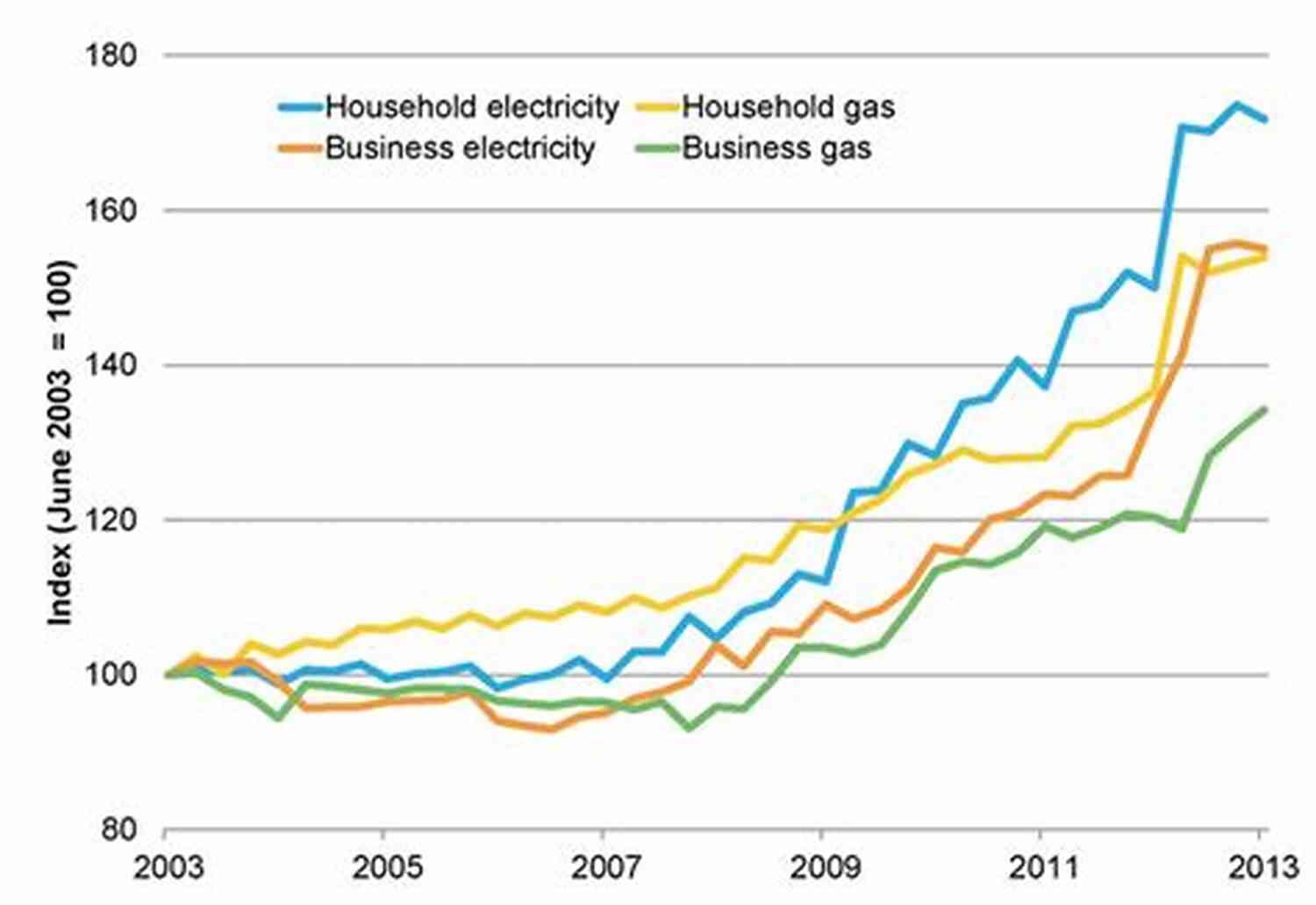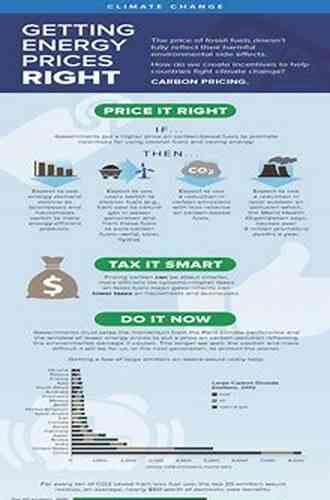Getting Energy Prices Right: From Principle To Practice


Energy prices play a crucial role in shaping the global economy, affecting every aspect of our lives, from the cost of transportation and heating to industrial production and technological innovation. Getting energy prices right is of utmost importance to ensure sustainable economic growth, promote environmental sustainability, and foster social equity.
The Significance of Energy Pricing
When energy prices are set incorrectly or fail to reflect the true cost of resources, it can lead to several harmful outcomes. Firstly, mispriced energy could result in overconsumption and wasteful usage patterns, straining natural resources and exacerbating environmental degradation. Secondly, incorrect pricing may provide inadequate incentives for the development and deployment of renewable energy technologies, hindering the transition to a sustainable and low-carbon economy.
Additionally, energy pricing has substantial implications for social equity. Higher energy costs can disproportionately affect low-income households, worsening energy poverty and exacerbating existing inequalities. Conversely, well-designed energy pricing mechanisms can promote energy efficiency, reduce energy poverty, and support vulnerable communities.
4.1 out of 5
| Language | : | English |
| File size | : | 4284 KB |
| Text-to-Speech | : | Enabled |
| Screen Reader | : | Supported |
| Enhanced typesetting | : | Enabled |
| Word Wise | : | Enabled |
| Print length | : | 1 pages |
Principles of Effective Energy Pricing
Developing effective energy pricing strategies requires adherence to certain principles that aim to align economic, environmental, and social objectives. These principles include:
- Cost reflectivity: Prices should reflect the true costs of producing and consuming energy, including the environmental and social externalities associated with different energy sources. This ensures that decisions made by consumers and producers account for the full impact of their energy choices.
- Gradual adjustment: Sudden and drastic price changes can be disruptive and have severe economic and social consequences. Energy prices should be adjusted gradually and accompanied by adequate supporting policies and measures to facilitate a smooth transition.
- Equity and fairness: Energy pricing mechanisms should consider the affordability and access to energy services for all, particularly vulnerable groups. Progressive tariff structures and targeted subsidies can help alleviate the burden on low-income households while ensuring a fair distribution of costs.
- Innovation and efficiency promotion: Good energy pricing practices incentivize energy efficiency investments and provide market signals for the development and adoption of innovative and sustainable technologies. Long-term price stability and transparency are vital to encourage such investments.
- International cooperation: Energy pricing strategies can be more effective if implemented globally. International collaboration can help coordinate efforts, align pricing mechanisms, and address cross-border externalities. Cooperation in energy pricing can contribute to global climate change mitigation and the achievement of sustainable development goals.
The Challenges in Implementing Effective Energy Pricing
While the principles of effective energy pricing may be clear, the implementation is often a complex task. Political, economic, and social factors pose significant challenges that must be overcome to establish a successful energy pricing framework. Some key challenges include:
- Political resistance: Shifting energy prices can generate opposition from vested interests, making it difficult to achieve necessary reforms. Political will and leadership are crucial to overcoming resistance and implementing fair and sustainable energy pricing.
- Data availability and accuracy: Accurate information on energy costs, consumption patterns, and externalities is essential for developing reliable pricing mechanisms. However, data availability and accuracy can pose significant challenges, particularly in developing countries or emerging economies.
- Public acceptance: The success of energy pricing reforms relies on public acceptance and trust. Transparent communication, education, and stakeholder engagement are necessary to build consensus and ensure a smooth transition.
- Complexity and coordination: Energy systems are highly complex, involving multiple stakeholders, such as governments, energy providers, regulatory bodies, and consumers. Coordinating these actors and aligning their interests require strong institutional frameworks and effective coordination mechanisms.
- Adapting to changing technologies: As the energy landscape evolves with the emergence of new technologies, energy pricing frameworks must adapt as well. Ensuring that prices adequately reflect the value of new technologies, such as energy storage or decentralized generation, is crucial for their successful integration.
Case Studies: Examples of Successful Energy Pricing
Several countries and regions have made significant progress in implementing effective energy pricing mechanisms. These case studies demonstrate the diverse approaches that can be taken to get energy prices right:
- Germany: Germany implemented feed-in tariffs, which provide a guaranteed price for electricity fed into the grid from renewable sources. This mechanism promoted the rapid expansion of renewable energy capacity and played a crucial role in Germany's energy transition.
- Sweden: Sweden introduced a carbon tax back in the early 1990s, making it one of the pioneers in pricing carbon emissions. This measure incentivized emission reductions and supported the development of renewable energy technologies.
- California, United States: California implemented a time-of-use pricing system, where electricity prices vary based on the time of day. This encourages consumers to shift their energy consumption to off-peak hours, reducing strain on the grid and enabling better integration of intermittent renewable energy sources.
- South Africa: South Africa utilized an innovative approach by implementing a social tariff structure to address affordability concerns. This structure provides lifeline tariffs to protect low-income households while gradually increasing prices for higher-income consumers.
Getting energy prices right is an essential step towards achieving a sustainable, low-carbon, and equitable energy system. By aligning economic, environmental, and social objectives, effective energy pricing can drive the necessary changes in consumption patterns, investment decisions, and technological innovation. Implementing energy pricing mechanisms that reflect the true cost of resources and promote efficiency and fairness is a complex task, but one that holds significant benefits for society as a whole. International cooperation, political commitment, and stakeholder engagement are key to overcoming the challenges and ensuring the success of energy pricing reforms.
So, let us work together towards getting energy prices right and transforming our energy systems for a better future.
4.1 out of 5
| Language | : | English |
| File size | : | 4284 KB |
| Text-to-Speech | : | Enabled |
| Screen Reader | : | Supported |
| Enhanced typesetting | : | Enabled |
| Word Wise | : | Enabled |
| Print length | : | 1 pages |
Energy taxes can produce substantial environmental and revenue benefits and are an important component of countries’ fiscal systems. Although the principle that these taxes should reflect global warming, air pollution, road congestion, and other adverse environmental impacts of energy use is well established, there has been little previous work providing guidance on how countries can put this principle into practice. This book develops a practical methodology, and associated tools, to show how the major environmental damages from energy can be quantified for different countries and used to design the efficient set of energy taxes. The results, which are illustrated for more than 150 countries, suggest there is pervasive mispricing of energy across developed and developing countries alike with much at stake in policy reform. At a global level, implementing efficient energy prices would reduce carbon emissions by an estimated 23 percent and fossil-fuel air pollution deaths by 63 percent, while raising revenues (badly needed for fiscal consolidation and reducing other burdensome taxes) averaging 2.6 percent of GDP.
Do you want to contribute by writing guest posts on this blog?
Please contact us and send us a resume of previous articles that you have written.




















Light bulbAdvertise smarter! Our strategic ad space ensures maximum exposure. Reserve your spot today!

 Miguel de CervantesArchie Love Showdown Chapter - The Epic Love Triangle That Shook Riverdale!
Miguel de CervantesArchie Love Showdown Chapter - The Epic Love Triangle That Shook Riverdale!
 Charles DickensThe Accidental Cases Of Emily Abbott: A Thrilling and Unpredictable Short...
Charles DickensThe Accidental Cases Of Emily Abbott: A Thrilling and Unpredictable Short...
 Hector BlairRise Birth Of Revolution The Ricchan Chronicles: Unveiling an Epic Tale of...
Hector BlairRise Birth Of Revolution The Ricchan Chronicles: Unveiling an Epic Tale of... Leo TolstoyFollow ·15.9k
Leo TolstoyFollow ·15.9k Aron CoxFollow ·10.7k
Aron CoxFollow ·10.7k Jeffrey CoxFollow ·5.6k
Jeffrey CoxFollow ·5.6k Ruben CoxFollow ·18.7k
Ruben CoxFollow ·18.7k Ernest PowellFollow ·10.4k
Ernest PowellFollow ·10.4k Jacques BellFollow ·6.7k
Jacques BellFollow ·6.7k Jayson PowellFollow ·9.7k
Jayson PowellFollow ·9.7k Kevin TurnerFollow ·12.2k
Kevin TurnerFollow ·12.2k

 Jesus Mitchell
Jesus MitchellUnveiling the Cosmic Mystery: The Star Emkay Connor...
The universe is an endless expanse filled...

 Roy Bell
Roy BellGood Hunting: Can You Kill the King? - A Thrilling...
Are you ready for an...

 Gary Cox
Gary CoxThe Face Changers: Jane Whitefield - A Master of Disguise
Imagine a world where you could change...

 Dashawn Hayes
Dashawn HayesChristmas Wishes Key Largo Christmas: A Magical...
The holiday season is truly a time of wonder...

 Kirk Hayes
Kirk HayesUnearth the Mysteries with Relic Hunter Coastal Vigilante
Welcome to the world of Relic...

 Kevin Turner
Kevin TurnerPlaying With Myself: Randy Rainbow Takes the Stage
Do you enjoy music, comedy, and quick-witted...

 Virginia Woolf
Virginia WoolfTank Blue Collar Billionaires Malone: The Inspiring Rags...
When you think of billionaires, images of...

 Norman Butler
Norman ButlerGive The Baby To The Fuhrer - A Gripping Military Fiction...
The Third Reich's involvement in World...

 Mike Hayes
Mike HayesConfessions of a Sociopath: Unveiling the Dark Mind
Have you ever wondered what goes on...

 Austin Ford
Austin FordThe Lost Nebula Lost Starship 16: An Epic Journey Beyond...
Have you ever dreamt of embarking on a...

 Guillermo Blair
Guillermo BlairPoison Orchids: A Darkly Compelling Psychological...
If you're a fan of gripping psychological...

 Carlos Fuentes
Carlos FuentesApache Nifi 51 Interview Questions: A Comprehensive Guide...
Are you preparing for a job interview that...
4.1 out of 5
| Language | : | English |
| File size | : | 4284 KB |
| Text-to-Speech | : | Enabled |
| Screen Reader | : | Supported |
| Enhanced typesetting | : | Enabled |
| Word Wise | : | Enabled |
| Print length | : | 1 pages |















